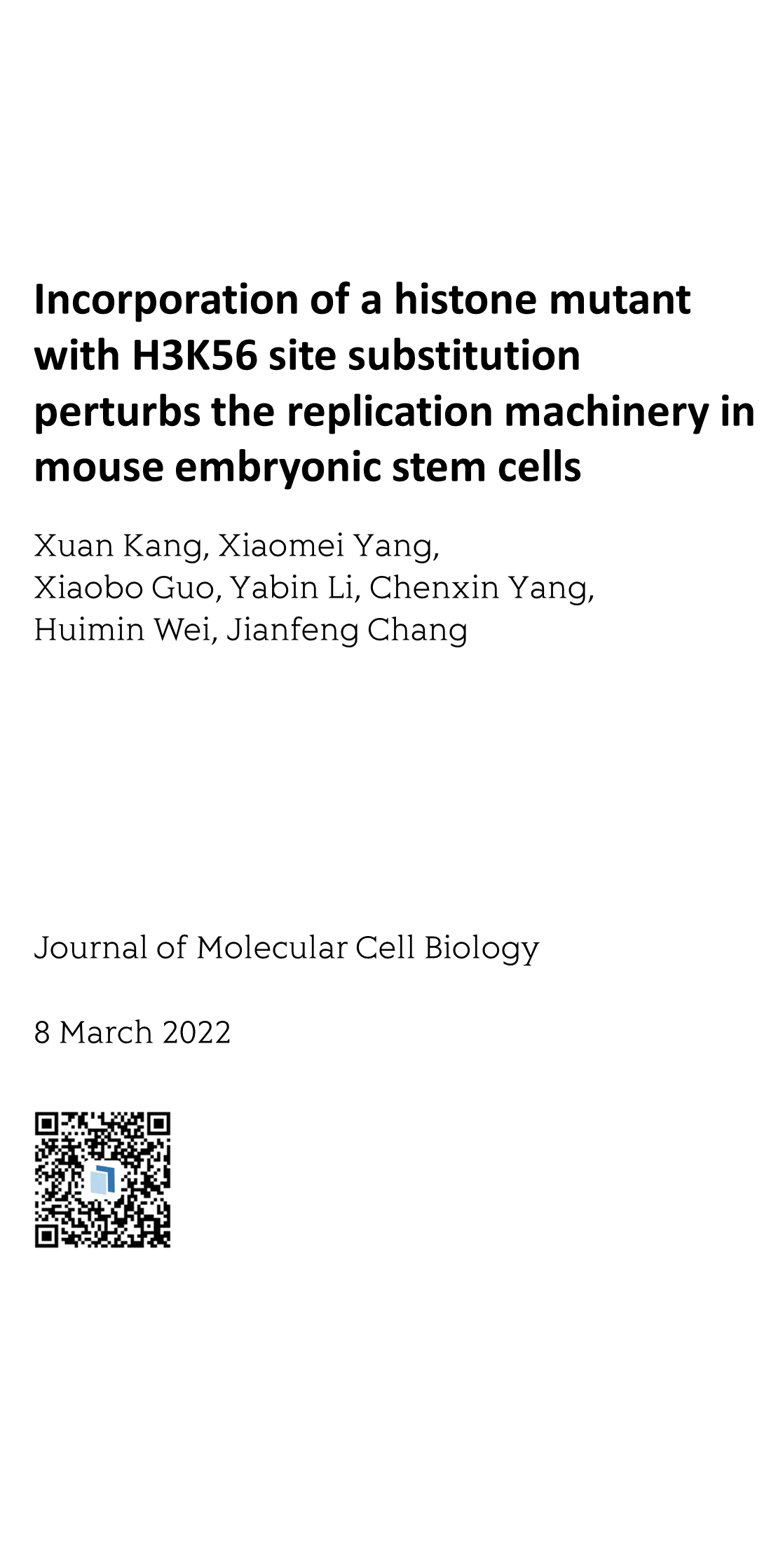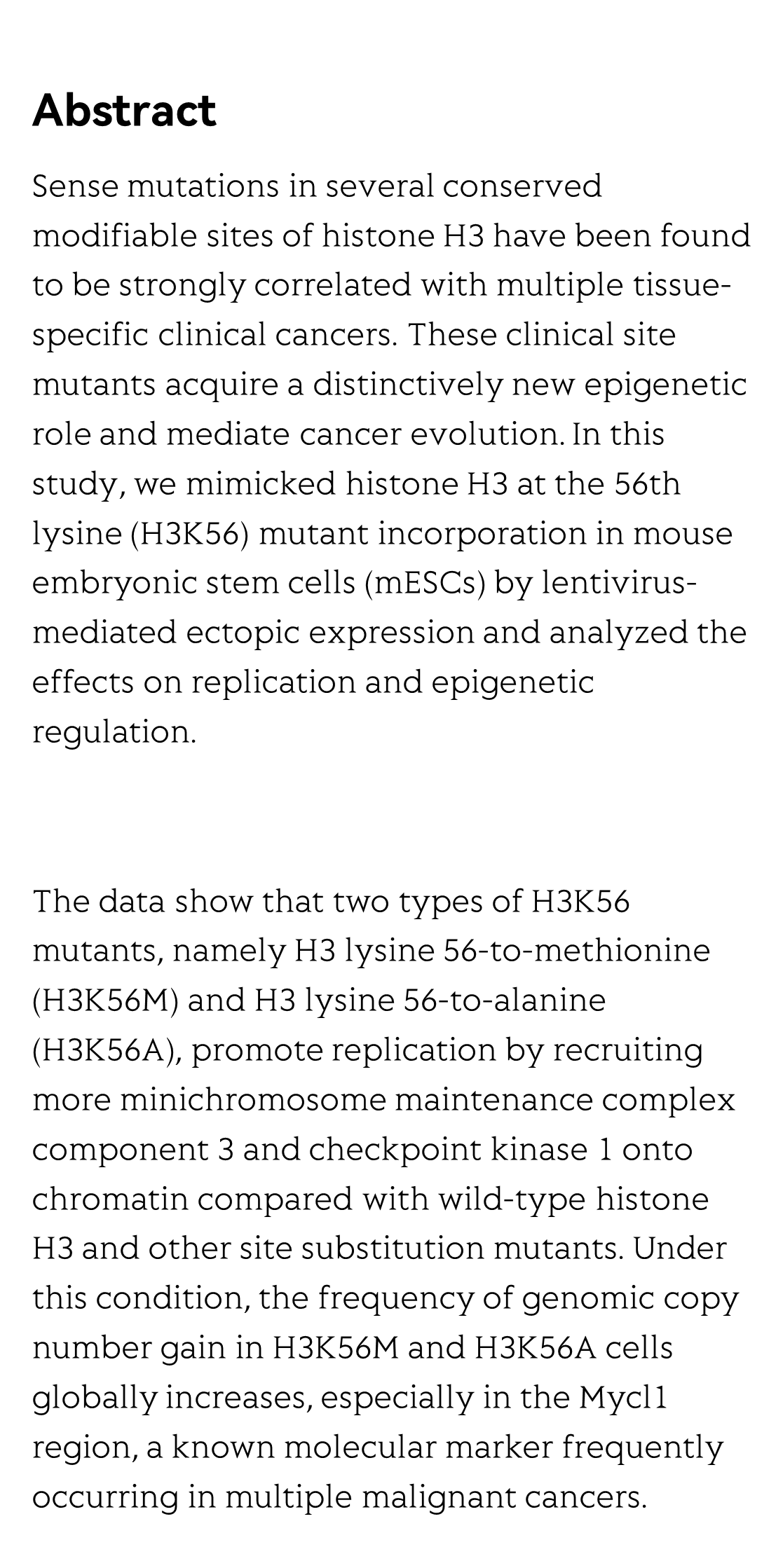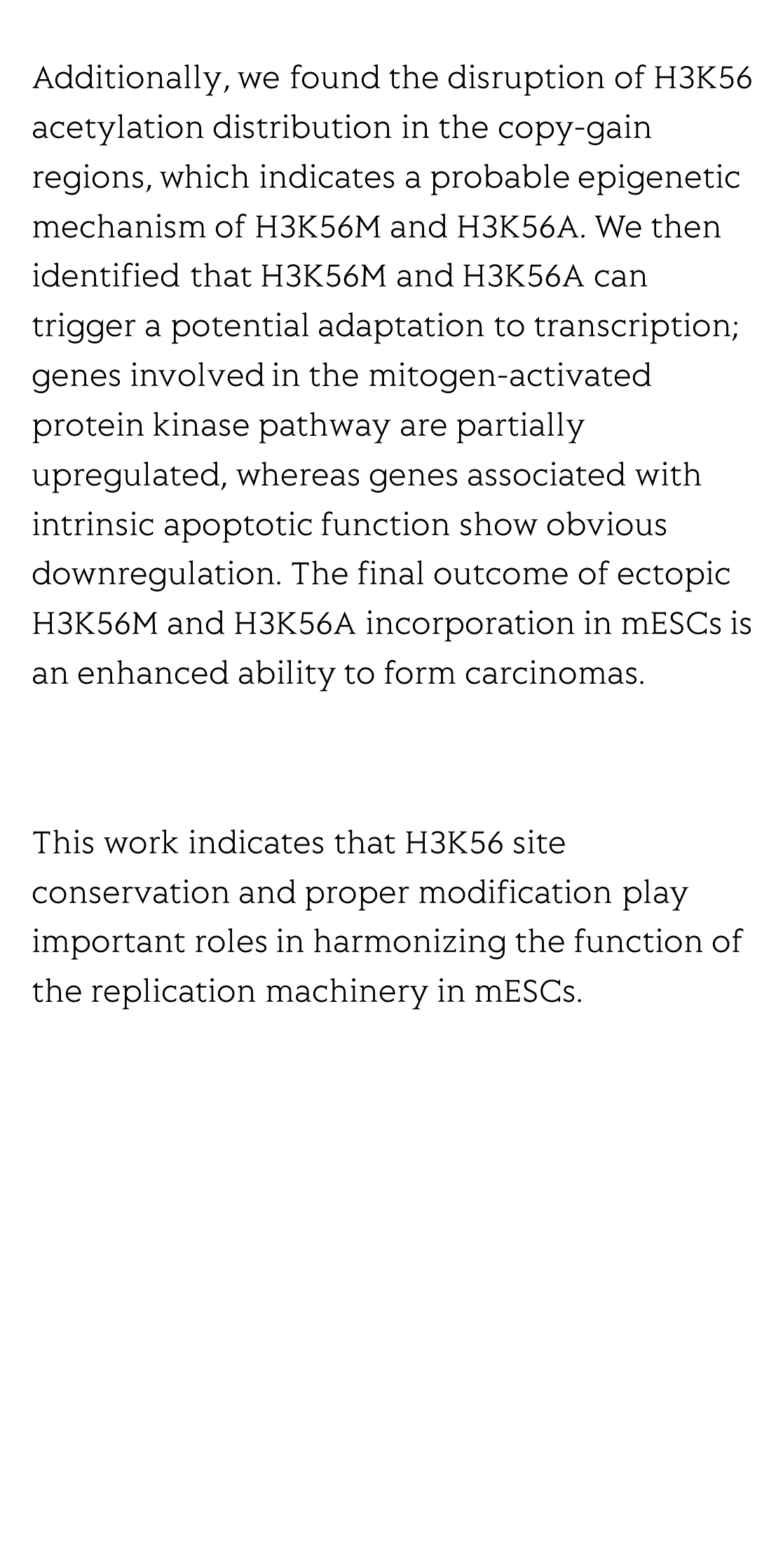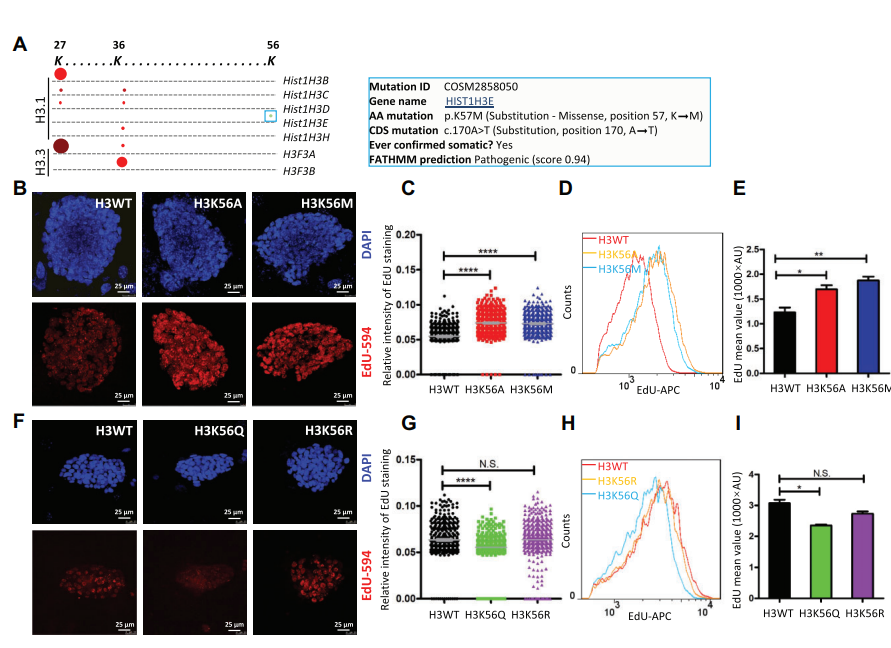(Peer-Reviewed) Incorporation of a histone mutant with H3K56 site substitution perturbs the replication machinery in mouse embryonic stem cells
Xuan Kang ¹, Xiaomei Yang ¹, Xiaobo Guo ¹, Yabin Li ¹, Chenxin Yang ¹, Huimin Wei ¹ ², Jianfeng Chang 常建锋 ¹
¹ Research Center for Translational Medicine, East Hospital, School of Life Sciences and Technology, Tongji University, Shanghai 200092, China
中国 上海 同济大学生命科学与技术学院东方医院转化医学研究中心
² Tsingdao Advanced Research Institute, Tongji University, Qingdao 266071, China
同济大学青岛高等研究院
Abstract
Sense mutations in several conserved modifiable sites of histone H3 have been found to be strongly correlated with multiple tissue-specific clinical cancers. These clinical site mutants acquire a distinctively new epigenetic role and mediate cancer evolution. In this study, we mimicked histone H3 at the 56th lysine (H3K56) mutant incorporation in mouse embryonic stem cells (mESCs) by lentivirus-mediated ectopic expression and analyzed the effects on replication and epigenetic regulation.
The data show that two types of H3K56 mutants, namely H3 lysine 56-to-methionine (H3K56M) and H3 lysine 56-to-alanine (H3K56A), promote replication by recruiting more minichromosome maintenance complex component 3 and checkpoint kinase 1 onto chromatin compared with wild-type histone H3 and other site substitution mutants. Under this condition, the frequency of genomic copy number gain in H3K56M and H3K56A cells globally increases, especially in the Mycl1 region, a known molecular marker frequently occurring in multiple malignant cancers.
Additionally, we found the disruption of H3K56 acetylation distribution in the copy-gain regions, which indicates a probable epigenetic mechanism of H3K56M and H3K56A. We then identified that H3K56M and H3K56A can trigger a potential adaptation to transcription; genes involved in the mitogen-activated protein kinase pathway are partially upregulated, whereas genes associated with intrinsic apoptotic function show obvious downregulation. The final outcome of ectopic H3K56M and H3K56A incorporation in mESCs is an enhanced ability to form carcinomas.
This work indicates that H3K56 site conservation and proper modification play important roles in harmonizing the function of the replication machinery in mESCs.
Flicker minimization in power-saving displays enabled by measurement of difference in flexoelectric coefficients and displacement-current in positive dielectric anisotropy liquid crystals
Junho Jung, HaYoung Jung, GyuRi Choi, HanByeol Park, Sun-Mi Park, Ki-Sun Kwon, Heui-Seok Jin, Dong-Jin Lee, Hoon Jeong, JeongKi Park, Byeong Koo Kim, Seung Hee Lee, MinSu Kim
Opto-Electronic Advances
2025-09-25
Dual-frequency angular-multiplexed fringe projection profilometry with deep learning: breaking hardware limits for ultra-high-speed 3D imaging
Wenwu Chen, Yifan Liu, Shijie Feng, Wei Yin, Jiaming Qian, Yixuan Li, Hang Zhang, Maciej Trusiak, Malgorzata Kujawinska, Qian Chen, Chao Zuo
Opto-Electronic Advances
2025-09-25







